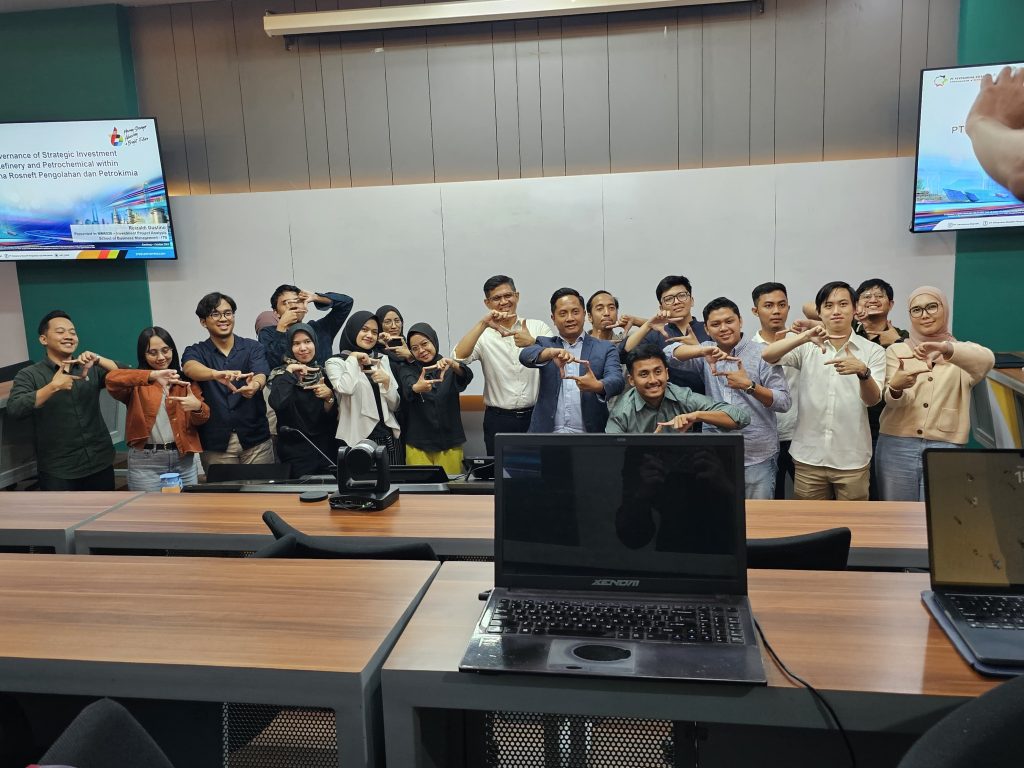Large-scale investments require thorough analysis to ensure sound decision-making. In the oil refinery industry, investment planning involves detailed project planning, market analysis, risk evaluation, and economic assessment.
This was conveyed by Reizaldi Gustino, President Director of PT Pertamina Rosneft Processing and Petrochemical, during a guest lecture on Investment Project Analysis for the Master of Business Administration at SBM ITB on Monday (10/28). In the session, the ITB Chemical Engineering alumnus, Reizaldi, presented “The Governance of Strategic Investments in Oil Refinery and Petrochemical Projects within PT Pertamina Rosneft Pengolahan and Petrokimia.”
According to Reizaldi, investment projects fall into two categories: business maintenance and business growth. Business maintenance investments focus on replacement, regulatory compliance, and optimization or efficiency improvements. Meanwhile, business growth projects target expansion, new products, new markets, and acquisitions.
Reizaldi highlighted the need for refinery projects in Indonesia to close the gap between fuel supply and demand, as the country still imports around 40% of its fuel. To reduce this dependency, constructing new refineries and revitalizing existing ones is essential.
The Tuban GRR project, a significant initiative by Pertamina, aims to build a new oil refinery integrated with a petrochemical complex. This project supports the National Energy Resilience Program and strengthen the domestic petrochemical industry, with a crude oil processing capacity of 300,000 barrels per day and 840 hectares.
In major investments, Reizaldi emphasized the importance of conducting a bankability feasibility study, which involves identifying funding sources such as equity and loans and leveraging project data through market, economic, and competition analysis to develop an optimal funding structure. Additionally, since 2017, there has been a strong emphasis on “green” oil and gas projects due to rising environmental concerns and geopolitical challenges.
The investment process at Pertamina begins with the initiation phase, which includes identifying business problems, conducting Financial Feasibility Studies (BFS), Basic Engineering Design (BED), and Preliminary Engineering Design. Market analysis is a critical stage involving assessing domestic, regional, and global market conditions and trends in raw materials, products, and commodity prices for optimal project design and economic evaluation. Global crude oil production data further underscores the importance of raw material availability and operational sustainability.
In economic analysis, common parameters include the Weighted Average Cost of Capital (WACC) and Internal Rate of Return (IRR), which set realistic financial targets and help identify projects worth pursuing. Reizaldi also underscored the importance of risk assessment, including operational, market, and regulatory risks, as an essential part of investment planning.






